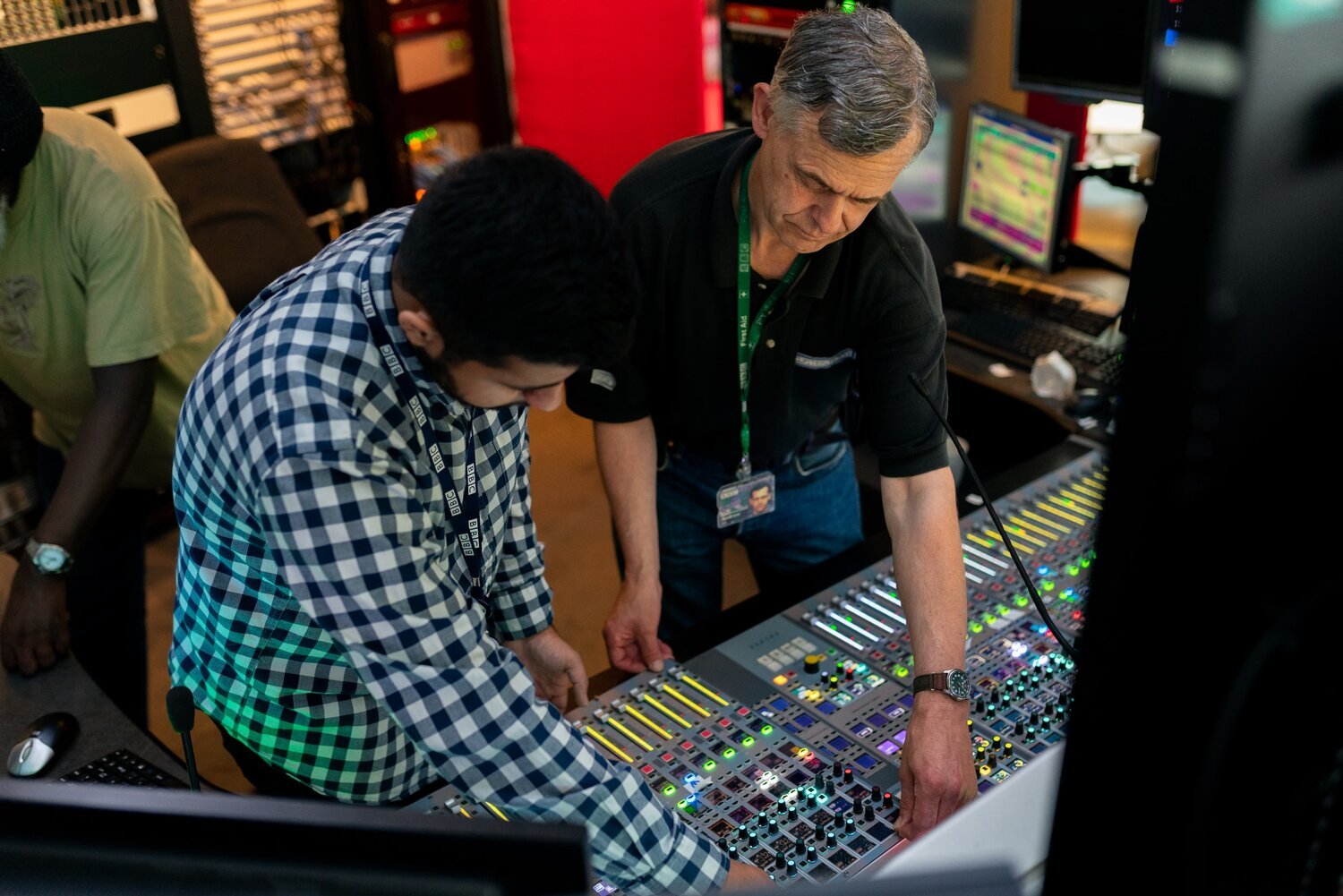NAVIGATING PRE-EMPLOYMENT OPTIONS: INTERNSHIPS, APPRENTICESHIPS, AND MENTORSHIP
FOR SOME PEOPLE, TRANSITIONING FROM HIGH SCHOOL INTO A STABLE CAREER TAKES MANY INTERMEDIARY STEPS.
While career pathways may be more complicated these days, the upshot is that we have more options and flexibility, as well.
You’ve probably heard of internships, apprenticeships, and mentorship. Perhaps you’ve heard of “pre-apprenticeship” or something like “employability training." What do they all have in common? They will help you gain skills and experience employers look for — and often demand, even for so-called entry level positions.
BREAKING DOWN THE OPTIONS
WORKFORCE READINESS AND PRE-EMPLOYMENT TRAINING:
These types of programs share the same purpose: preparing people for the workplace. They are usually for a fixed period of time with clear learning objectives.
Some employers offer training programs as part of onboarding for a job. There are also programs available to students, and programs for adults in the community looking to prepare for a career change or to reenter the workforce. Often, such programs are free for high-need groups such as people who did not complete high school or people with low income. Hawai‘i also has options for Native Hawaiians through providers like Alu Like.
The skills learned in such programs will vary, but a good option for high school students or recent graduates would be to find something specifically targeted at helping them find and hold a professional job. Such programs might teach students about workplace etiquette, job hunting, crafting a compelling resume, preparing for interviews, professional communication and dressing, and time management — skills that would be beneficial in almost any workplace.
INTERNSHIP:
The internship is a general work-learning experience where you work for a company or organization. Internships tend to be flexible, and you may have some freedom to set your expected time commitment and responsibilities. Often, an internship teaches you how to be part of a workplace while gaining generalizable skills. Internships are usually unpaid or provide a small stipend, and tend to be short-term or take up very few hours so that the intern can attend school/college full or part-time.
An internship is almost expected for many young job-seekers. For some competitive fields, multiple internships may be expected in order to meet the experience qualifications on a job listing. But don’t be discouraged by those who constantly have one or more internships throughout high school and college. Sometimes one internship is all you need to get started with a company or industry, and can lead directly to a regular position.
Focus on finding the best internship that matches your interests and desired experience.
APPRENTICESHIP:
An apprenticeship is similar to an internship, but is usually more rigid, long-term, and specialized. Apprenticeships are common in construction trades and other highly specialized skilled industries, and may be part of the requirements for obtaining specific work licensures or certifications.
Apprentices work on specific skills that will lead directly to a specific line of work. Some programs will guarantee a job or certification upon completion of a set number of hours of work and demonstration of competencies. Apprentices are usually paid, making this a great option for someone who wants to support themselves while learning hands-on.
MENTORSHIP:
Mentorship can be formal or informal, short-term or long-term, general or specific. A mentor could help you develop your interview skills, provide person counseling, or teach you how to do a specific job. Mentors can be from your school, workplace, church, professional organization, interest-based club, family, or anywhere, really.
A mentor is there to provide personalized support for you. Think about what you want to get out of your mentorship, and remember that the best mentor is the one that you trust and feel comfortable talking to.
Finding mentorship opportunities may be trickier than finding an internship or apprenticeship, since they aren’t usually advertised on job boards. You might find someone at your school, job, internship, or apprenticeship that you feel would be a good mentor. Ask them! You could even exchange e-mails with a well-known professional in the field you’re interested in. Ask them! There are also some mentorship programs out there, and your workplace or school might have a formal program already. Ask them!
What’s the best fit for you or the student in your life? It depends! See what’s available by browsing LinkedIn or jobs boards. If you like a specific company or industry, ask if they’re taking interns, apprentices, or entry-level job trainees. If possible, talk with those offering opportunities or helping to connect people with opportunities.
A great way to find options like these is to talk to the counselor at your school or college. They might have connections that will help you find a great opportunity, or can help you search. Public schools also have access to the ClimbHi portal to help match students with internships, apprenticeships, job shadowing, and other pre-employment options. You can also come to our office hours for personalized advice(see the black banner at the top of our website)! We also have a page dedicated to resources and options you might find useful.
Lastly, remember that if something is not a good fit, you still learned something valuable! Use that knowledge to adjust your plan and look for the next thing to try. Changing directions doesn’t mean you’re losing progress.


